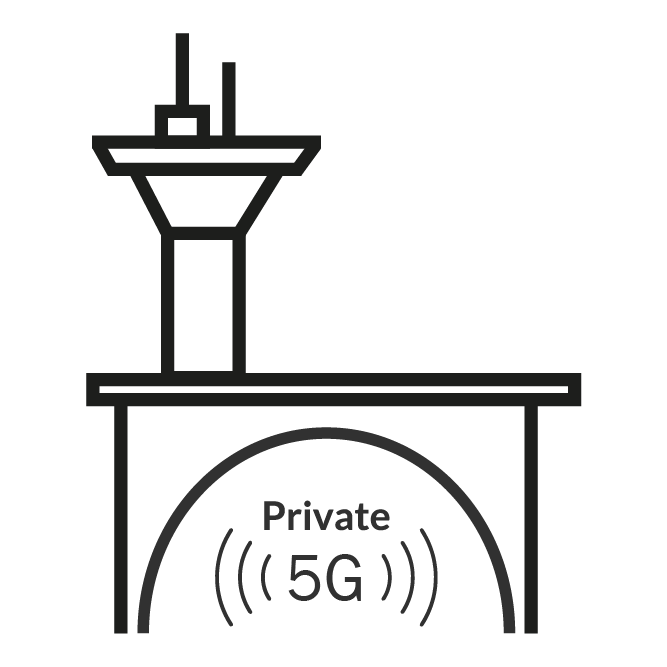Transfer and exploitation of sensor data, promotion of control missions, monitoring of isolated workers: deploying a private 5G network in the gas and oil industries has become an essential asset for ensuring people's and property's safety.
Private 5G, essential for the protection and safety of workers
Many terminals and solutions already provide the lone worker protection service but often use narrowband telecommunications systems. Only voice is transmitted, sometimes in alternate mode (as with a walkie-talkie).
To improve the protection of workers on industrial sites, private 5G extends the functions of these systems. The very high speed and reliability of the connections offer several possibilities:
- Alerts initiated by the lone worker;
- Group calls;
- Duplex voice communications;
- Video communications;
- Transfers of large files and geolocation data.
Private 5G is based on the "MCX services" standard, defined by the 3GPP, which imposes quality of service and prioritization of associated flows across the entire network and radio infrastructure, to ensure the use of mission-critical services. It also specifies service and user management functions.
Sensors and drones to prevent and detect incidents
To detect possible leaks of explosive or toxic liquids or gases, private 5G can connect IoT sensors for monitoring valves, corrosion, or measuring vibrations of rotating parts. Coupled with artificial analysis functions, private 5G allows the detection of fires by fixed cameras or drone flights. 5G is also decisive during preventive inspection visits. It supports the establishment of real-time videoconversations between operators on remote sites and inspectors on the ground.
5G connected cameras to detect intrusions
Energy sector manufacturers must ensure the perimeter security of their installations. A private 5G network strengthens perimeter security capabilities by connecting wireless video cameras (more easily installed), to which artificial intelligence can be added as close as possible to capture.
The advantages of deploying a private 5G network reinforce the security of the oil and gas industries in all its forms. Isolated workers must carry out tasks alone in remote areas and maintain extended and reinforced contact with their teams. The machines are under strict control thanks to the feedback and analysis of data collected by sensors connected to the 5G network. It improves the site's perimeter security by connecting multiple cameras, which can be enriched by artificial intelligence.
